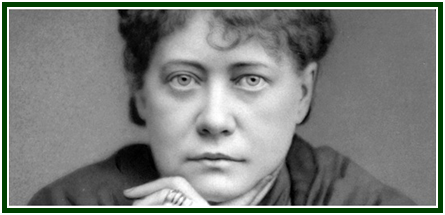
Key Excerpts Selected From the
Writings of a New Thought Thinker
O. S. Marden

1. Having a Positive Nature
The world takes us at our own valuation. It believes in the man who believes in himself, but it has little use for the timid man, the one who is never certain of himself; who cannot rely on his own judgment, who craves advice from others, and is afraid to go ahead on his own account.
It is the man with a positive nature, the man who believes that he is equal to the emergency, who believes he can do the thing he attempts, who wins the confidence of his fellow-man. He is beloved because he is brave and self-sufficient.
[From “An Iron Will”, Orison Swett Marden, Merchant Books, USA, 2009, 83 pp., see p. 23.]
2. The Spirit of Boldness
The man without self-reliance and an iron will is the plaything of chance, the puppet of his environment, the slave of circumstances.
Are not doubts the greatest of enemies? If you would succeed up to the limit of your possibilities, must you not constantly hold to the belief that you are success-organized, and that you will be successful, no matter what opposes?
You are never to allow a shadow of doubt to enter your mind that the Creator [1] intended you to win in life’s battle. Regard every suggestion that your life may be a failure, that you are not made like those who succeed, and that success is not for you, as a traitor, and expel it from your mind as you would a thief from your house.
There is something sublime in the youth who possesses the spirit of boldness and fearlessness, who has proper confidence in his ability to do and dare.
[From “An Iron Will”, Orison Swett Marden, Merchant Books, USA, 2009, 83 pp., see pp. 22-23.]
3. The Influence of (Good) Will
What is will-power, looked at in a large way, but energy of character? Energy of will, self-originating force, is the soul of every great character. Where it is, there is life; where it is not, there is faintness, helplessness, and despondency.
“Let it be your first study to teach the world that you are not wood and straw; that there is some iron in you.” Men who have left their mark upon the world have been men of great and prompt decision. The achievements of will-power are almost beyond computation. Scarcely anything seems impossible to the man who can will strongly enough and long enough.
[“An Iron Will”, p. 17.]
4. Regular Victories in a Long Battle
There is no one so humble that he cannot improve his condition, if, “without halting, without rest”, he is constantly “lifting better up to best”.
If more people realized that great things are not always done by wonderful strokes of genius or brilliancy, they would not so often wait and wait for some extraordinary motive, some unusual opportunity for making a great hit, instead of trying to make each day a triumph over yesterday.
The plodder, who has an ideal, who tries to do everything he undertakes better than it has ever been done before, who is everlastingly trying to improve his best, gets way ahead of the man who is always waiting for a big opportunity, for a chance to do what he considers something worthwhile.
[From “Making Life a Masterpiece”, Orison Swett Marden, Elibron Classics, 2005, a facsimile edition of the 1916 edition, 329 pp., see p. 153.]
5. Seeking One’s Inner Growth
It is very pleasant to slide along the line of least resistance, to take things easy, and not feel
obliged to exert one’s self too strenuously, but one never gets anywhere by adopting such a policy.
The habit of taking things easy is as insidious as the opium habit, the drug habit, or the drink habit. If you cannot overcome your natural inertia or acquired laziness, you may be sure you will never get beyond mediocrity, and may be a total failure.
The man who does things is ever master of himself, of his moods. He never stops to consider whether he feels like doing a thing or not. The only question he asks is whether it is the best thing to do, and if it is he will make himself do it.
If I were just starting out again in active life and wanted to make the most of myself, I would resolve to do whatever would promote my growth, whatever would make me a larger, broader and stronger man, regardless of whether it was pleasant or unpleasant, agreeable or disagreeable, convenient or inconvenient. ‘Growth would be my goal’, and I would sacrifice my comfort, leisure, good times – anything – to accomplish that one end.
[From “Making Life a Masterpiece”, pp. 216-217.]
6. The Lesson of the Big Trees
What is needed by him who would succeed in the highest degree possible is careful planning. He is to accumulate reserved power, that he may be equal to all emergencies.
Thomas Starr King said that the great trees of California gave him his first impression of the power of reserve. “It was the thought of the reserve energies that had been compacted into them”, he said, “that stirred me. The mountains had given them their iron and rich stimulants, the hills had given them their soil, the clouds had given their rain and snow, and a thousand summers and winters had poured forth their treasures about their vast roots.”
No young man can hope to do anything above the commonplace who has not made his life a reservoir of power on which he can constantly draw, which will never fail him in any emergency. Be sure that you have stored away, in your powerhouse, the energy, the knowledge that will be equal to the great occasion when it comes.
[From “An Iron Will”, pp. 13-14.]
7. Training and Discipline
In respect to mere mundane relations, the development and discipline of one’s will-power is of supreme importance in relation to success in life.
No man can ever estimate the power of will. It is a part of the divine nature, all of a piece with the power of creation.
We speak of God’s fiat, “Fiat lux, Let light be”. Man has his fiat. The achievements of history have been the choices, the determinations, the creations, of the human will.
[From “An Iron Will”, p. 7.]
8. Our Character and the Divine World
“The education of the will is the object of our existence”, says Emerson.
Nor is this putting it too strongly, if we take into account the human will in its relations to the divine. This accords with the saying of J. Stuart Mill, that “a character is a completely fashioned will”.
[From “An Iron Will”, p. 7.]
9. The Spinal Column of Personality
“There are three kinds of people in the world”, says a recent writer, “the wills, the won’ts, and
the can’ts. The first accomplish everything; the second oppose everything; the third fail in everything.”
The shores of fortune, as Foster says, are covered with the stranded wrecks of men of brilliant ability, but who have wanted courage, faith, and decision, and have therefore perished in sight of more resolute but less capable adventurers, who succeeded in making port.
Were I called upon to express in a word the secret of so many failures among those who started out with high hopes, I should say they lacked will-power. They could not have will: and what is a man without a will? He is like an engine without steam. Genius unexecuted is no more genius than a bushel of acorns in a forest of oaks.
Will has been called the spinal column of personality. “The will in its relation to life”, says an English writer, “may be compared at once to the rudder and to the steam engine of a vessel, on the confined and related action of which it depends entirely for the direction of its course and the vigor of its movement.”
Strength of will [2] is the test of a young man’s possibilities. Can he will strong enough, and hold whatever he undertakes with an iron grip? It is the iron grip that takes and holds. What chance is there in this crowding, pushing, selfish, greedy world, where everything is pusher or pushed, for a young man with no will, no grip on life?
The man who would forge to the front in this competitive age must be a man of prompt and determined decision.
[From “An Iron Will”, pp. 18-19.]
NOTES:
[1] The Creator: the universal Law, and your own Higher Self and Immortal Soul. (CCA)
[2] Strength implies nobility and legitimacy. An illegitimate and strong will would be worse than nothing. (CCA)
000
The above article was published as an independent item in the associated websites on 21 February 2022, being reproduced from “The Aquarian Theosophist”, June 2020 edition, pages 3-6.
000

Helena Blavatsky (photo) wrote these words: “Deserve, then desire”.
000